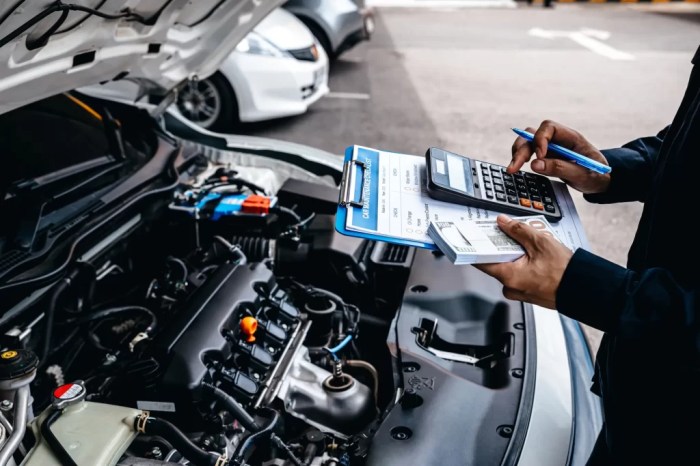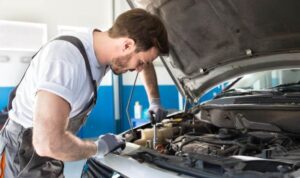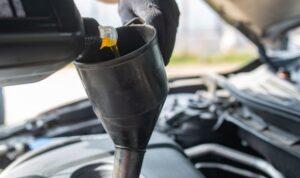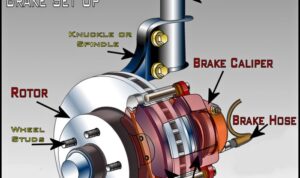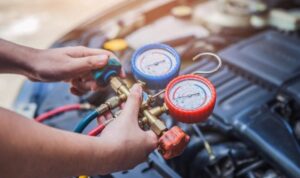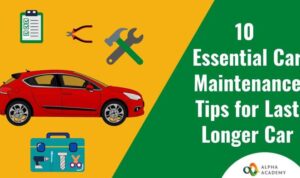Car repair cost-saving tips sets the stage for this enthralling narrative, offering readers a glimpse into a story that is rich in detail with a brimming originality from the outset.
Car repairs can be a significant financial burden for many individuals. In this guide, we will explore practical tips to help you save money on car repairs, from understanding repair costs to negotiating with mechanics.
Understanding Car Repair Costs

When it comes to car repair costs, several factors come into play. Understanding these factors can help you manage your expenses more effectively. Let’s delve into the key aspects that contribute to car repair costs and how you can potentially save money in the long run.
Factors Influencing Car Repair Costs
- Vehicle Age and Make: Older vehicles or luxury cars may have higher repair costs due to the availability and cost of parts.
- Extent of Damage: The severity of the issue and the parts involved can significantly impact the overall repair bill.
- Labour Costs: Labour rates can vary based on location and the expertise required for the repair.
- Quality of Parts: Opting for original manufacturer parts can be more expensive than aftermarket alternatives.
Common Car Repairs and Costs
- Brake Pad Replacement: Average cost ranges from $150 to $300 per axle, depending on the vehicle.
- Oil Change: Typically costs between $20 to $50, depending on the type of oil and service provider.
- Spark Plug Replacement: Average cost is around $100 to $200, including labour.
Importance of Regular Maintenance
Regular maintenance can help prevent major issues that could lead to costly repairs down the line. Simple tasks like checking fluid levels, tire pressure, and changing filters can prolong the lifespan of your vehicle and reduce the chances of unexpected breakdowns.
DIY vs. Professional Repairs: Car Repair Cost-saving Tips

When it comes to car repairs, deciding between doing it yourself or seeking professional help can have a significant impact on cost savings. Let’s explore the differences between DIY repairs and professional services to help you make an informed decision.
Cost Savings Comparison
- DIY repairs often save money on labor costs, as you won’t be paying for the expertise of a professional mechanic.
- However, professional services may be more cost-effective for complex repairs that require specialized tools or knowledge.
- Consider the cost of tools and equipment needed for DIY repairs, as they can add up over time if you don’t already own them.
Suitability for DIY vs. Professional Help
- Basic maintenance tasks like oil changes, air filter replacements, and battery checks are typically suitable for DIY repairs.
- On the other hand, complex issues such as engine or transmission problems are best left to professional mechanics who have the expertise to handle them.
- If you’re unsure about your ability to perform a repair safely and effectively, it’s best to seek professional help to avoid causing further damage to your vehicle.
Tips for DIY Car Repairs
- Always refer to your vehicle’s manual for specific instructions on how to perform maintenance tasks.
- Invest in quality tools and equipment to ensure that you can complete repairs accurately and safely.
- Start with simple tasks and gradually work your way up to more complex repairs as you gain confidence and experience.
- Don’t hesitate to ask for help or seek guidance from online resources and forums if you encounter challenges during the repair process.
Choosing Quality Parts
When it comes to car repairs, using quality parts is essential for ensuring the longevity and performance of your vehicle. While it may be tempting to opt for cheaper, lower-quality parts, investing in reliable replacements can save you money in the long run by reducing the likelihood of future repairs and breakdowns.
Importance of Quality Parts
- Quality parts are designed to meet the specific requirements of your vehicle, ensuring proper fit and function.
- Using inferior parts can lead to increased wear and tear on other components, ultimately costing you more in repairs down the line.
- Quality parts often come with warranties, providing you with added peace of mind and protection.
Affordable yet Reliable Replacement Parts
- Consider purchasing certified refurbished or remanufactured parts from reputable suppliers to save money without sacrificing quality.
- Compare prices from different vendors and look for promotions or discounts to get the best deal on authentic parts.
- Join car enthusiast forums or online communities to get recommendations on where to find affordable yet reliable replacement parts.
OEM Parts vs. Aftermarket Parts
- OEM (Original Equipment Manufacturer) parts are made by the same company that produced the original parts in your vehicle, ensuring compatibility and quality.
- Aftermarket parts are produced by third-party manufacturers and may offer a more cost-effective option, but quality can vary.
- While OEM parts may be more expensive upfront, they often provide better performance and longevity compared to aftermarket alternatives.
Preventative Maintenance Techniques

Preventative maintenance is crucial in keeping your car running smoothly and avoiding costly repairs down the line. By performing regular maintenance tasks and inspections, you can catch potential issues early and extend the lifespan of your vehicle.
Regular car maintenance is crucial to ensure your vehicle runs smoothly and safely. By following these Essential car maintenance tips , you can prolong the lifespan of your car and avoid costly repairs. From checking the oil and tire pressure to monitoring the brakes and lights, these tips cover everything you need to know to keep your car in top condition.
Don’t wait until it’s too late, start implementing these maintenance tips today!
Benefits of Following a Maintenance Schedule
- Regular oil changes: Changing your oil at recommended intervals helps lubricate the engine and prevent premature wear and tear.
- Tire rotations: Rotating your tires regularly ensures even wear, extends tire life, and improves fuel efficiency.
- Checking fluids: Regularly checking and topping up fluids like coolant, brake fluid, and transmission fluid can prevent overheating and mechanical issues.
- Inspecting belts and hoses: Checking belts and hoses for wear and tear can prevent breakdowns and costly repairs.
Tips for Conducting Regular Inspections
- Check tire pressure: Maintaining proper tire pressure improves fuel efficiency, extends tire life, and ensures safe driving.
- Inspect brakes: Regularly check brake pads, rotors, and brake fluid levels to ensure optimal braking performance.
- Listen for unusual noises: Pay attention to any unusual noises like squeaks or rattles, as they can be early indicators of potential issues.
- Look for leaks: Check for any leaks under the vehicle and address them promptly to prevent damage to components.
Negotiating Repair Costs

When it comes to car repairs, negotiating the costs can make a significant difference in your final bill. By employing certain strategies and being informed, you can potentially save money and ensure that you are not overcharged for services.
Getting Accurate Quotes
Before agreeing to any repairs, it is essential to get accurate quotes from multiple mechanics or service centers. This allows you to compare prices and services offered, giving you leverage when negotiating costs. Be sure to ask for a detailed breakdown of the estimated costs, including labor, parts, and any additional fees.
Avoiding Unnecessary Services, Car repair cost-saving tips
Another crucial aspect of negotiating repair costs is avoiding unnecessary services. Some mechanics may suggest additional repairs that are not immediately needed or could be done at a lower cost elsewhere. By understanding your car’s maintenance needs and questioning any unclear recommendations, you can prevent unnecessary expenses.
Questioning Repair Cost Breakdown
It is important to question any unclear charges in the repair cost breakdown. If you notice discrepancies or charges that seem inflated, do not hesitate to ask for clarification. Understanding how the costs are calculated can help you negotiate a fair price for the services provided. Remember, transparency is key when it comes to negotiating repair costs.
Ending Remarks

In conclusion, implementing these cost-saving strategies can help you better manage your car repair expenses and keep your vehicle running smoothly. By following these tips, you can avoid unnecessary costs and make informed decisions when it comes to maintaining your car.
When it comes to keeping your car in top condition, following essential car maintenance tips is crucial. Regularly checking your oil, tire pressure, and brakes can help prevent costly repairs in the future. Remember to also schedule routine inspections and tune-ups to ensure your vehicle runs smoothly.
By staying proactive with maintenance, you can prolong the life of your car and keep it safe on the road.
- Steps to clean car headlights: A Complete Guide for Brighter and Safer Driving - January 7, 2025
- Common car engine problems: Top issues, signs, and solutions - January 6, 2025
- DIY car oil change guide: Everything you need to know to save time and money - January 5, 2025

